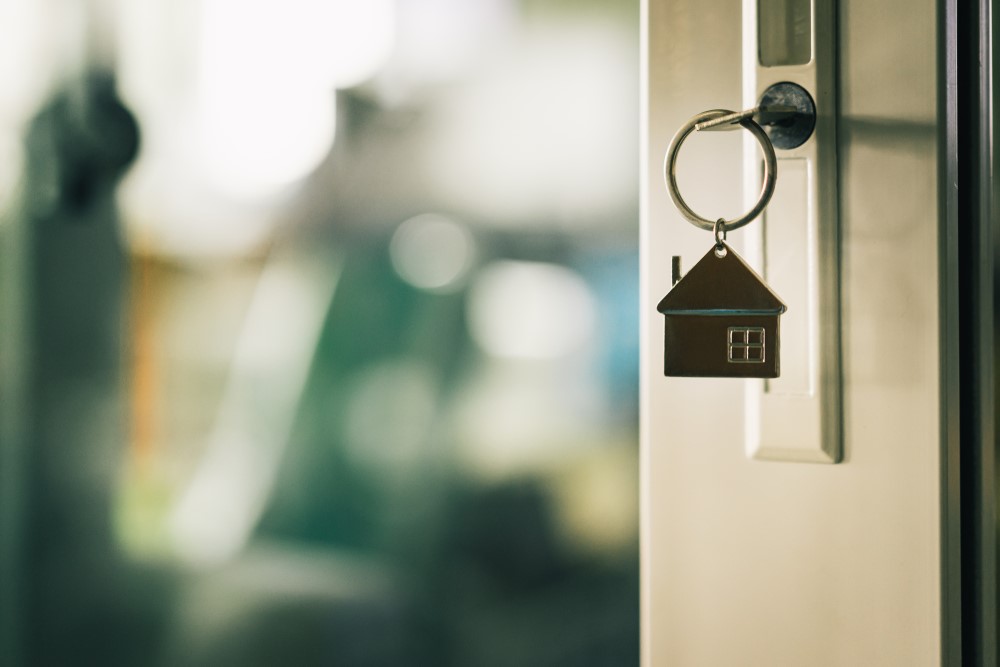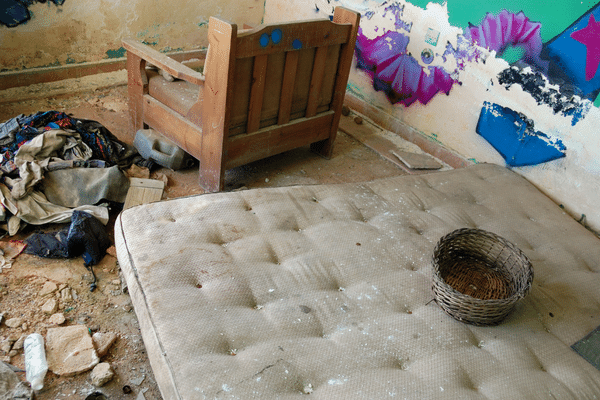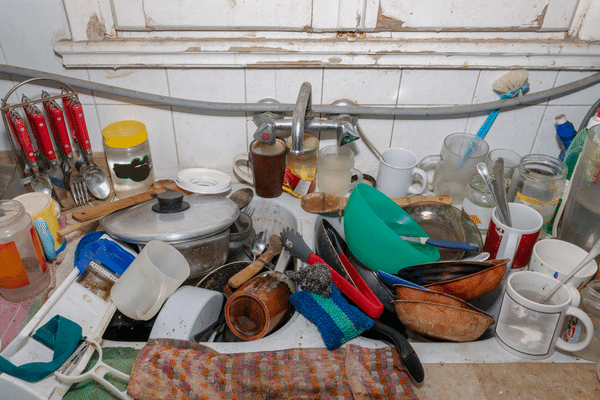
How to Prepare for a Successful Move to Denver: a Step-by-Step Guide
Moving to a new city can be both exciting and overwhelming. Denver, known for its vibrant culture, stunning natural beauty, and thriving job market, is

Can You Sell a House With Squatters?
You can sell a house with squatters. However, there are specific laws you must follow. I will cover everything you need to know about selling your house with squatters in this article including:

Every homeowner understands that squatters are a nightmare to have. Even worse, finding the correct information on how to remove the squatters to sell your property can be pretty vague. It is important to note that some people view trespassing and squatting as the same thing, but there are defined differently by the law.
Trespassing is considered a legal offense, while squatting is defined as moving into an unused or abandoned house. So, if you discover a squatter in your home and there is no additional legal offense, you will have to treat your dispute in civil court, and getting rid of the squatters can prove challenging.
Fortunately, there are methods to sell a house with squatters, one is selling to a Denver cash home buyer (if you’re in Denver). This article identifies how to sell your house, even if it has squatters.
I want to sell my house quickly to a legit Colorado cash buyer. SELL MY HOUSE QUICK DENVER: I need to sell m house quickly, but who will buy my home with squatters?
NO REPAIRS, NO REALTORS, LOCAL HOME BUYERS. Because of these fantastic benefits, you can sell your house fast with squatters. We buy houses in Denver, Arvada, Lakewood, Fort Collins, and Colorado Springs. We will buy your home anywhere in Colorado.
Fill out the form to request a FREE ALL CASHH OFFER today. Or Call Us At (720)-738-6020

First, squatting is using an abandoned or unused house for free accommodation at the property owner’s expense. While squatting is illegal, there are a couple of loopholes squatters can use in the tenancy laws to protect themselves.
For a squatter to claim a property, they must live in it for at least 18 years. Therefore, the term “squatters” can refer to unwanted tenants that occupy your house and intend to remain for a long time.
You might consider selling your house to real estate investment companies or property management company and other cash buyers in these instances. The catch, however, lies in the fact that the law doesn’t provide an avenue for you, the rightful property owner with legal possession, to remove the squatters without a court order. Fortunately, in most scenarios, squatters are evicted using a court order that sanctions their removal.
Nevertheless, dealing with squatters can be stressful, and you need to know what the law states.

The following tips can help you sell your house even if you have squatters.
The best way to prevent any problems with squatters is to ensure that you know the law regarding tenants. Some states rule that any individual staying on a property for over 30 days becomes a tenant. This legal loophole is what squatters use, making it difficult for rightful homeowners with legal possession to evict them.
In rare instances, they might claim squatter rights to the property. This is called an adverse possession claim. However, for adverse possession claim to happen, the squatters must live in the house for numerous years (18 years or 7 with Color of Title in Colorado) and meet various other conditions according to adverse possession law.
By definition, a squatter uses someone else’s property without their permission. So, when you discover that squatters occupy your vacant house and are in continuous possession, move to inform the local authorities. Doing this ensures that the police could deem that the squatters are also trespassing on the property, which is a legal offense.
This is one of the most important steps to remove squatters, as the police have the power to evict them. Once the police come to the house, ensure that you show them proof of legal ownership of the house or vacant property.
You should note that some people consider themselves to be a professional squatter; removing them could prove difficult. In these instances, squatters often fabricate false legal documents, sometimes even a rental property lease. They can even take advantage of the state’s tenancy laws to show that they have permission to remain on the property.
If you’re thinking about how to sell my house fast. In such a scenario, you might have to consider getting legal advice and starting an eviction process, which could prove time-consuming and costly. Some property owners looking to sell their house quickly might offer money to squatters for vacating the property.

Start the Eviction Process
If the local authorities cannot get the squatter to leave and the squatters dig in their heels, it might be time to start eviction. There are various eviction laws around the country; however, Colorado requires that the process begin by issuing a legal eviction notice letting the squatters know they need to evict the property or vacant home.
If you are lucky, an eviction notice can scare away the squatters, causing them to leave. However, if the legal notice doesn’t prove successful, the next step would be to provide the squatters a notice of a set number of days for them to evict your house.
If the squatters still don’t leave your property by then, you might have to file an unlawful detainer lawsuit against them. The right authorities will serve the lawsuit, resulting in a court hearing in a couple of days.
If the court sides with you and you have all the appropriate legal documents, the squatters will get a notice for X number of days to evict the property before the authorities take action and change the locks. Furthermore, if the squatters do not leave after this, it might be necessary to enlist the services of the police to have the squatters forcibly removed.
While this process is particularly useful, it can take a bit of time and is expensive. Thankfully, new legislation enables you to evict a squatter trespassing in just 72 hours.
And the process begins!
After the criminal trespasser has been evicted, you should take the time to inspect your house and check for what damages the squatters caused to the vacant home. Generally, squatters tend to cause further damage to your house out of spite.
Begin the process by deep cleaning every inch of your home. When cleaning up, you should check with the authorities if you are allowed to throw away any belongings left behind or if there are some legal steps you must follow.
If the property is severely damaged, you should consider repairing it before placing it on the market. This makes perfect sense as everyone wants to buy a property that is in ideal condition. Moreover, fixing the house can be a great way to get a reasonable price as the property owner.
Nevertheless, if the ordeal with the squatters has incurred significant repair and legal expenses, you might want to sell the house as-is rather than renovating it. You should consider selling the house to a real estate investor or a cash buyer, as they are likely to buy it in its current condition and renovate it before placing it on the market.
So, can you sell a house with squatters? As a homeowner with a professional squatter, you should note that the process of removing them before selling your house is not an easy one.
Fortunately, there are a few things you can start doing immediately, with one being filing the eviction papers. This can help you evict the criminal trespasser as quickly as possible. Once the squatters are gone, you can clean your home before placing it on the market or having someone sell it for you.
Need help finding a Denver cash home buyer? WeBuyHousesInDenver.org is your solution to selling your house, because as Denver’s number 1 cash home buyer we pay cash for houses in any condition so if you want a cash offer on your property simply give us a call or fill out an online form and our team of experts will get to work, quick smart, to help you get your house SOLD!

WeBuyHousesinDenver.org is a cash for houses company and we are experts at buying houses in Denver and all of Colorado. Our mission is to give the people of the Mile High city the best solution to sell any house. When you sell your house for cash to us there are:
This is how selling a house in Denver should be!
Fill out the form to get your no-obligation cash offer today.
The latest real estate news, forecasts, insight, and advice are brought to you by the leading authorities in the Denver housing market. We have ears and boots on the ground in the Mile High reporting the facts. Extensive research goes into all our articles and we gather information from trusted real estate experts, renowned local Denver housing specialists, home buyers, and more. We buy houses Denver and as accomplished professionals with a proven track record, we now want to share our experiences with you. Please enjoy!


Moving to a new city can be both exciting and overwhelming. Denver, known for its vibrant culture, stunning natural beauty, and thriving job market, is
Value add in real estate means finding ways to make a property more valuable. This can include things like renovating, improving operations, or changing how
Colorado Springs is a great location for rental property owners, but even in high-demand rental markets, selling your rental property sometimes makes financial sense. The
We’re a service-focused, home buyer that specializes in helping homeowners get rid of burdensome houses quickly. We are Colorado cash buyers who can buy your house fast with a fair all-cash offer. Imagine an instant online quote to sell as-is, without realtors and on your timeline! As a house buyer that’s what we offer. Therefore, if you need to sell your house fast and need a trusted professional home buying company look no further because we buy houses fast for cash.
We Buy Houses In Denver, 1337 Delaware St, Denver, CO 80204